🍃 06 | NatureStack: shared wonder
November 2024: Weather turning edition
Winter’s been muscling the water out of our creek with brisk northwest winds, pinning our boat’s keel in the mud. Pairs of ducks plow the riffled water with their V’s, back and forth, back and forth, sowing a cover crop of cold. The air invigorates, both with bracing temperature and blustery can’t-sit-still energy.
The wind boosted my run yesterday, reminding me of David Abram’s essay, “The Air Aware.” He writes about our emotional and sensory attunement to weather as the consciousness of a place. We relate to the atmosphere and land around us as animals, often unaware of its effects on our bodies and moods. To David, language is sourced in this interconnection with the elements. Matter is spirit—the two are indivisible.1
“The unruly poltergeist of our collective mental climate, wind, after all, is the ancient and ever-present source of the words spirit and psyche. It is the sacred ruach of the ancient Hebrews (the invisible “rushing-spirit” that lends its life to the visible world); it is the Latin anima, the soulful wind that animates all breathing beings (all animals); it is the Navajo Nilch’i (the Holy Wind from whence all earthly entities draw their awareness).”
As I sat to compile this issue, our resident heron graced us with a visitation. I’m torn between two loves: watching her and sharing marvelous nature writing from the past few weeks.
Rebecca Wisent curates this lovely directory of nature-focused writers. It’s organized by region and topic and, if you’re a nature writer yourself, easy to get listed.
Now let’s bundle up and immerse in wild wind.
🍃 Wonder
Diane Porter, Wild Petunias
I was utterly charmed by this mystery-thriller of a story, in which
follows her curiosity to a marvelous discovery. Nature is amazing, full stop.“A few weeks later, the popping started. It took me a minute to realize it was coming from the Wild Petunia bag. However, the pods weren’t just releasing the seeds! They were firing them at high velocity.”
Imogen Furlong, The magic of snow
I adore snow, so of course I loved
’s love-letter from a guide to the season’s first snow in the Scottish Highlands.“Snow isn’t just frozen water, it’s the atmosphere’s imagination at play.”
Gill Moon, Learning from the landscape
Last month’s NatureStack included
’s essay extolling the many benefits of nature connection. This piece is about attention and immersion in a beautiful wild landscape — what could be better for the soul? She writes about,“finding a special place that gets under your skin and keeps calling you back. . . .We tend to think that we learn from books or workshops or people we admire but actually if we pay attention the landscape itself is the greatest teacher.”
Priscilla Stuckey, Caring for the Local Earth, Post-Election Edition
’s piece is well-timed and so heartening. The opening with a line from 8th-century Chinese poet Du Fu’s poet hooked me. Nature connection is what I (all of us) need right now (and always). Lucky for us, opportunities abound.“The best remedy I know for a broken heart is to get closer to nature. And the best place to do that is your local area. Your home. This is a time to connect with trees in your neighborhood, to watch the play of light through branches that may now be bare of leaves, to welcome the birds that live with you in winter. This is a time to breathe in the gift of oxygen provided by trees and plants (and plankton), to lean against a tree and feel the scrape of its bark and the strength of its trunk. To ask a tree how to cope, and then to sit and listen for an answer.”
🍃 Entanglement
Susan J. Tweit , Year of Spiritual Thinking
The abundant gift of nature’s love in
’s post spilled over into the comments, giving me a needed boost. Susan offers two simple practices to take in some “Vitamin N”: a Four Directions breathing exercise and what she calls “Adopt a Spot.” Both are wonderful ways to ground into, as David Abram would say, “the magic of the real.”“These are rituals you can use anywhere—city, suburb, town, rural, wilderness. It doesn’t matter where you are, nature and the healing benefits of that community of diverse lives are there in some form or other. The truth is, nature is us: we are each comprised of an ecosystem of billions of microbial lives, without whom our bodies, minds and spirits cannot and do not function.”
🍃 Immersion
Glyn Lehmann, I Stand Silent
I was drawn to Australian composer,
’s gorgeous rich tapestry of sound by the title of the pinned post, The Wisdom of Trees, which turns out to be part 1 of a composition for string orchestra and piano. As of yesterday, all six parts are compiled into one recording with liner notes. What a treat. I’m listening now as I finish up this issue.“I described this series as lessons from trees because of the insights that I have discovered by paying more attention to trees. Being, belonging, becoming, resilience, regrowth, nourishment, community.”
🍃 Story
“Orbital” is a seductive, intimate read. The language is sensory, poetic, and economical. Harvey packs everything into a small package—love, longing, endurance, loss, daring, boredom, novelty, routine, courage, appreciation, even humility. Wonder and awe abound. One reviewer calls it a love letter to Earth, which of course is true. I particularly admire the characters’ acceptance of contradiction and respect for irony. Their very presence in orbit necessitated being “shot into the sky on a kerosene bomb”—which has its own consequences.
My poet friend suggested the novel sentence structure—demonstrated by
in this post—conveys the disordering effects of zero-gravity on language itself. What a cool idea. It got me thinking that the omniscient point of view works so well here because the astronauts and cosmonauts are literally all-seeing from their space station. I’m tempted to share a few quotes but anything I write is inadequate to catching this book’s essence. Just read it.🍃 Hope
Minimalism and not buying stuff are the hot new trend. After a three-month grind of sorting and purging and packing up decades of life, I endorse this with full enthusiasm. No more stuff, please!
“It doesn’t require throwing a bunch of stuff away, or placing strict limits on oneself, or even achieving a certain aesthetic. Instead, it celebrates having sturdy items for a long time and using products up to the last drop — things that are easy on the wallet and also lighter on the planet.”
read the full story
🍃 Housekeeping
What did you enjoy most about this edition of NatureStack? I love to hear from readers. If you have any suggestions or requests for next month, do let me know in the comments.
If you enjoyed this post, a lovely ❤️ keeps me going. Another way to help others find great nature writing on Substack is to share this post by restacking it on Notes, via the Substack app. Thanks!
I’m scheduling the next round of interviews to begin in January. If you’d like to participate, please DM me on chat, or reach out via email: gabrielli-dot-julie-at-gmail.
Read about more marvelous nature writers in the Reciprocity interview series, which so far has featured Antonia Malchik, Katharine Beckett Winship, Jessica Becker, Hadden Turner, Nan Seymour, Kate Bown, Sydney Michalski, Andrea Joy Adams, Susannah Fisher, Michela Griffith,
, and . Next up: of Mostly Water.In case you missed the NatureStack #05, it’s here:
“The Air Aware,” is a treat, available on Orion’s website.



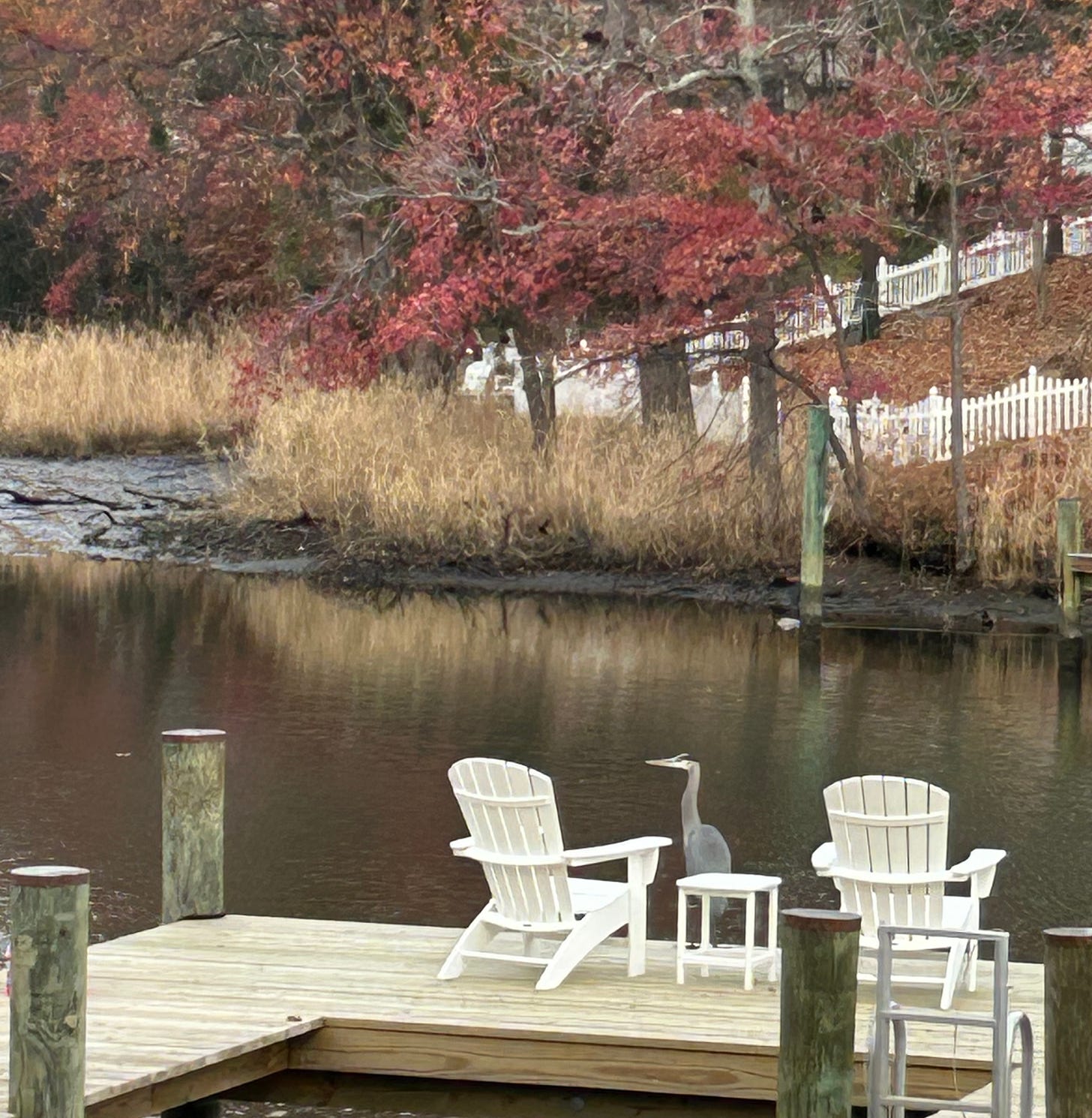

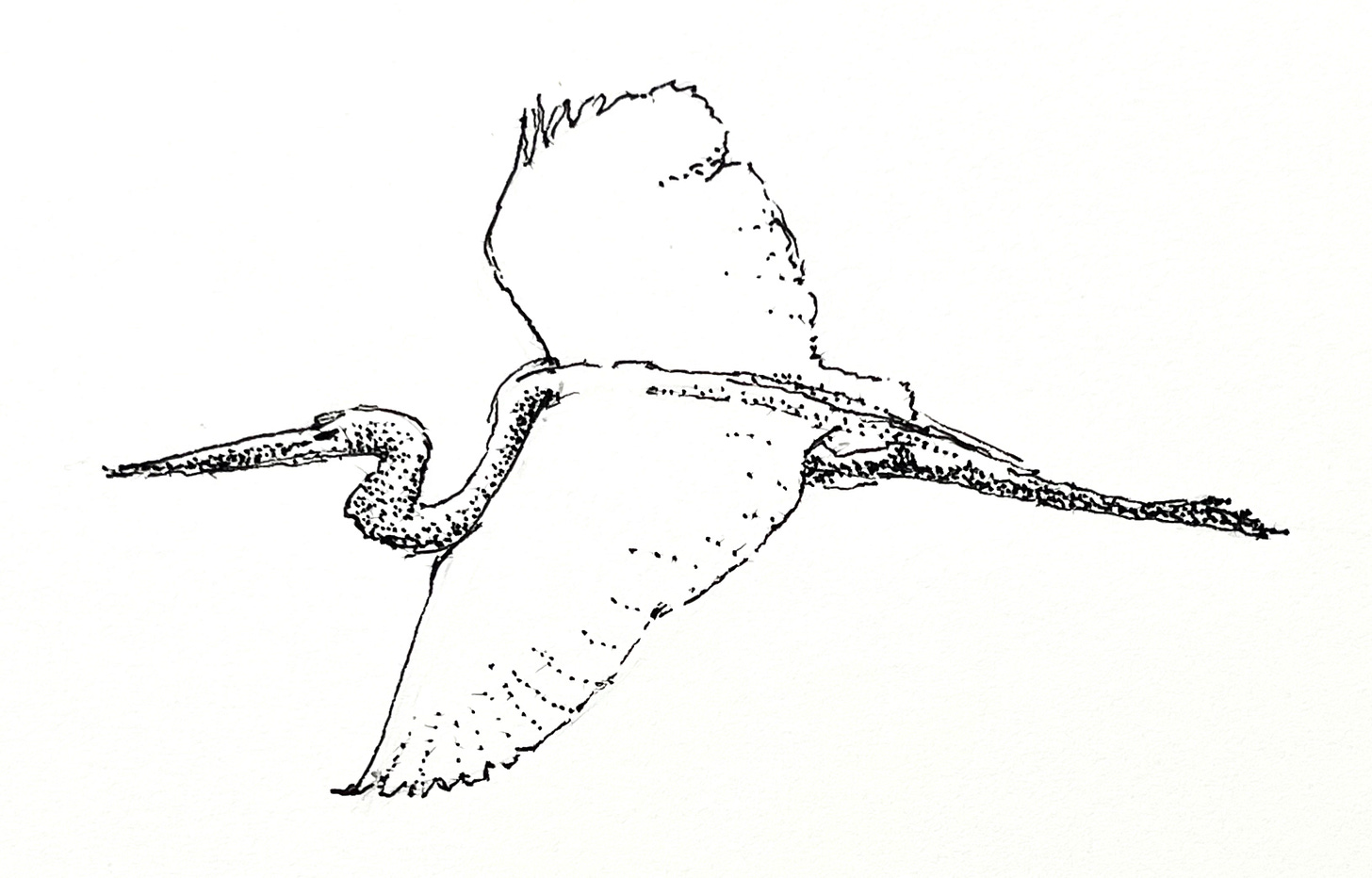


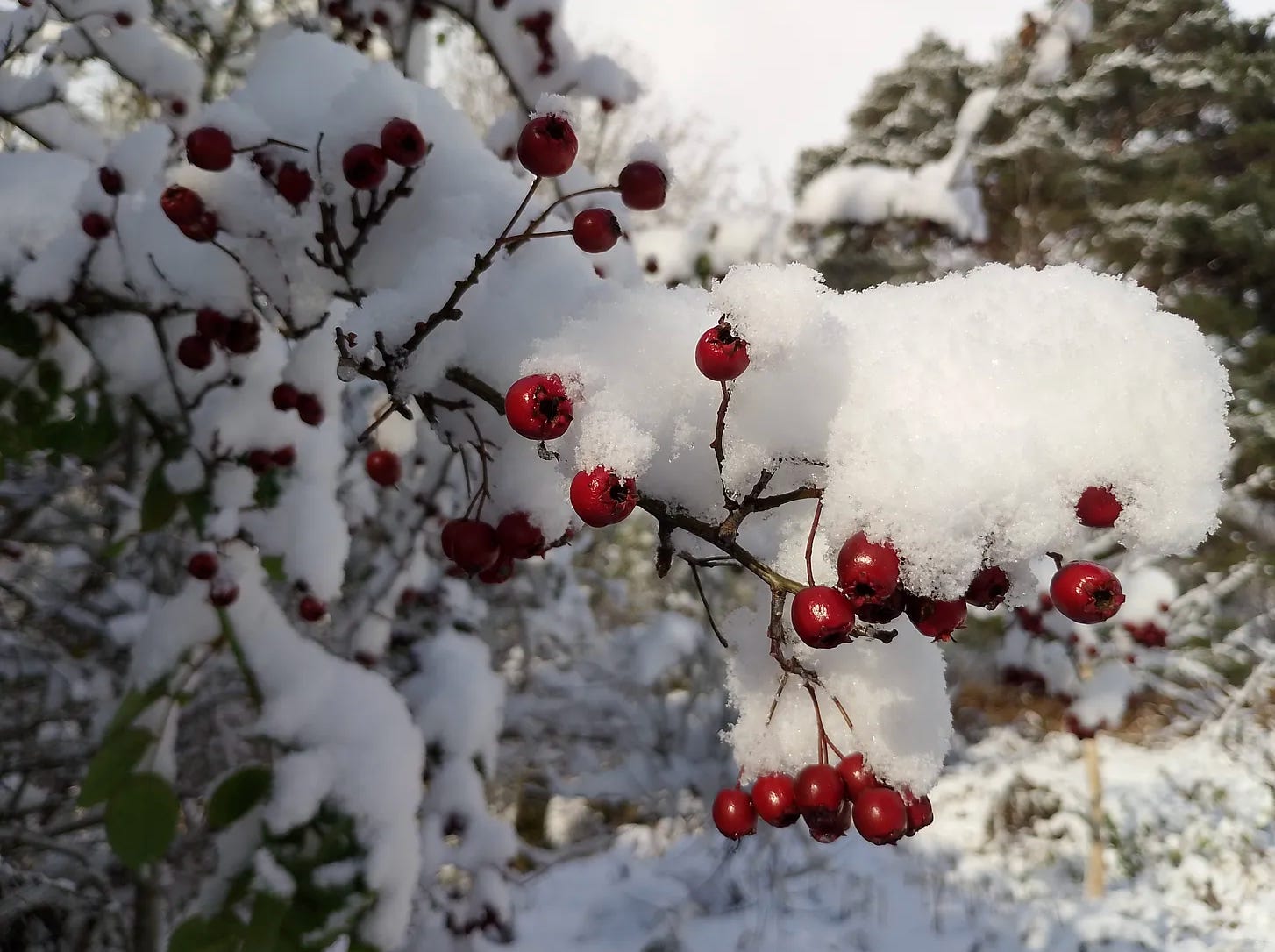




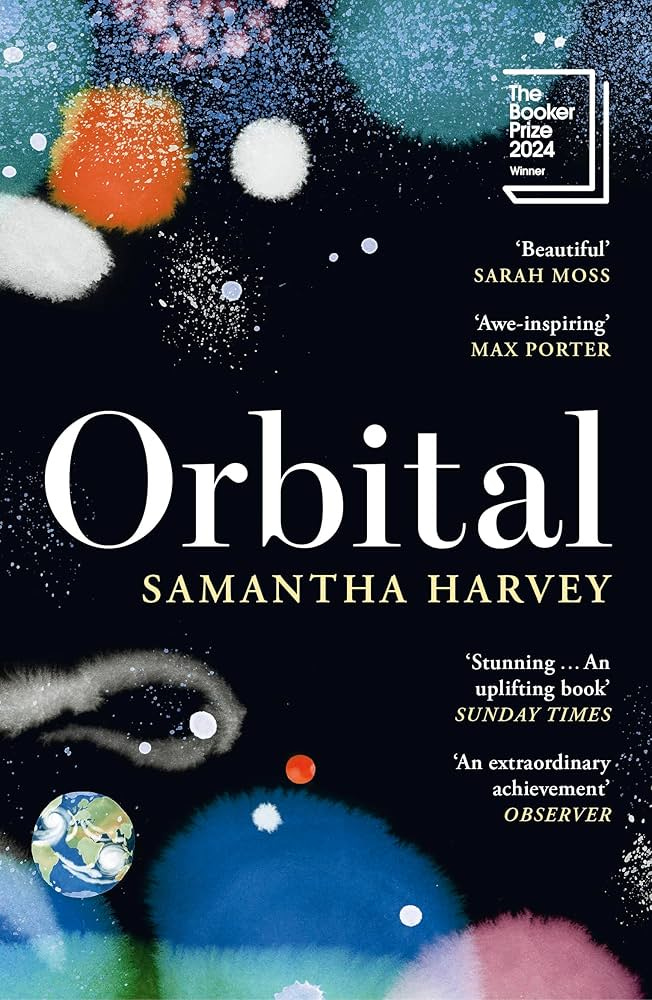


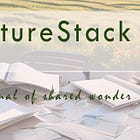

Hi Rebecca, I enjoyed many of these offerings, but I think it was Priscilla Stuckley's essay that resonated the most today. The quote from the Chinese poet, reinforced a necessary perspective on post election mental adjustments. I also enjoyed quieting with the music of Glyn Lehmann. Thank you.
Thank you! I love this! That anti-gravity is shifting language around in Orbital.